by Brian Hioe
語言:
English
Photo Credit: Brian Hioe
THE ANNUAL PRIDE PARADE that takes in Taipei at the end of October, Taiwan LGBT Pride, was held today. An estimated 176,000 participated in the parade according to organizers, which is up from 120,000 last year. This was the twenty-first year that the pride parade was held. The uptick in attendance may be due to the opening of borders after the end of COVID-19, which had led to lower attendance in past years.
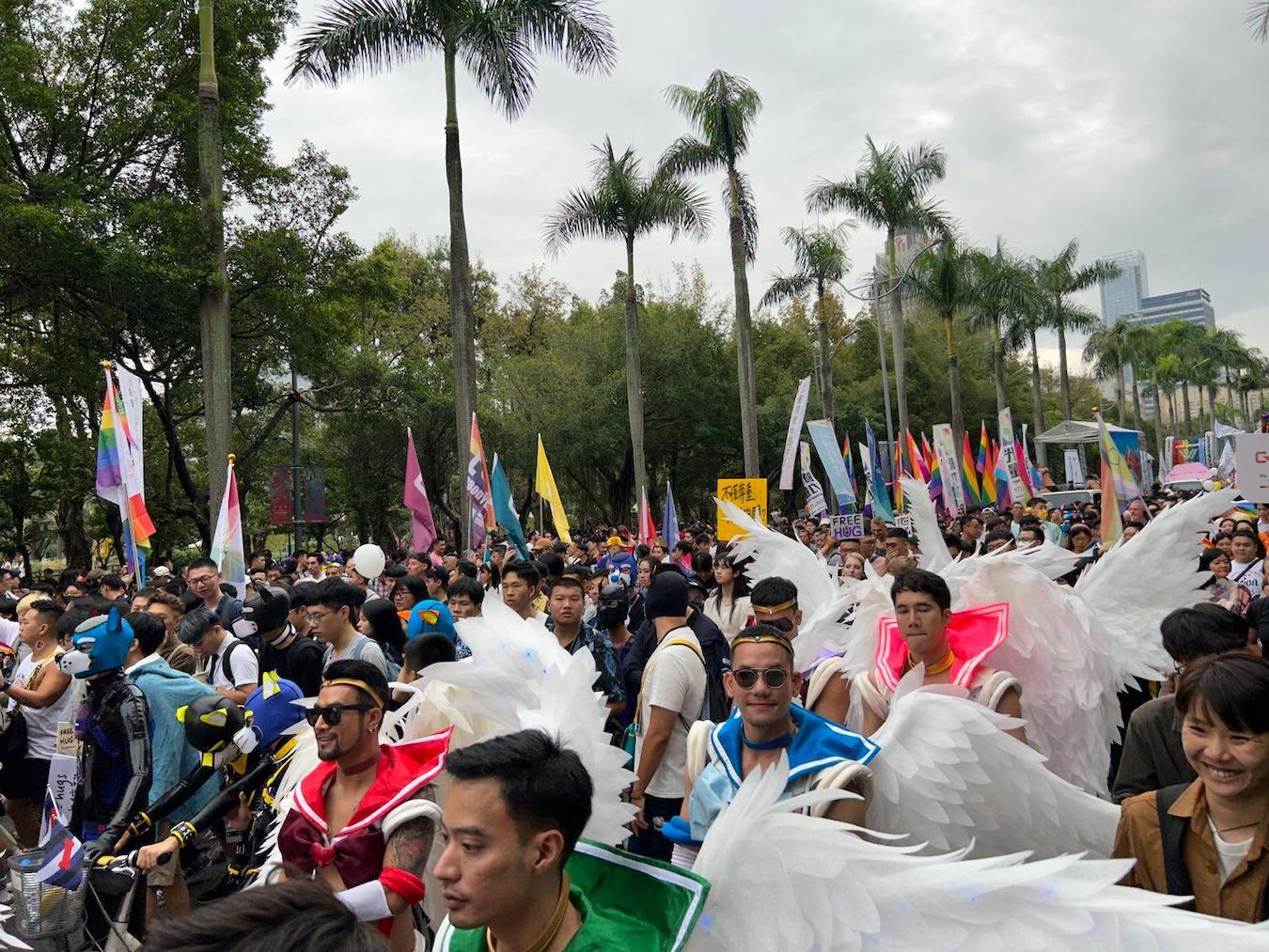 Photo credit: Brian Hioe
Photo credit: Brian Hioe
The format of the parade largely followed that of past years, with a market and fair at Taipei City Hall that began at noon, where a stage was also set up for performances and speeches. Among the stalls were civil society organizations, as well as local LGBTQIA+ businesses ranging from various bars and clubs to streaming platform GagaOOLala. Likewise, other pride parades in Taiwan, such as the Kaohsiung pride parade, and in Asia, such as the Seoul pride parade, had stands. Nevertheless, as in past years, the number of corporate sponsors is also on the rise, whether this included tech companies such as Google or Uber, sex toy company Tenga, vaccine manufacturer AstraZeneca, clothing brand 50%, or many others.
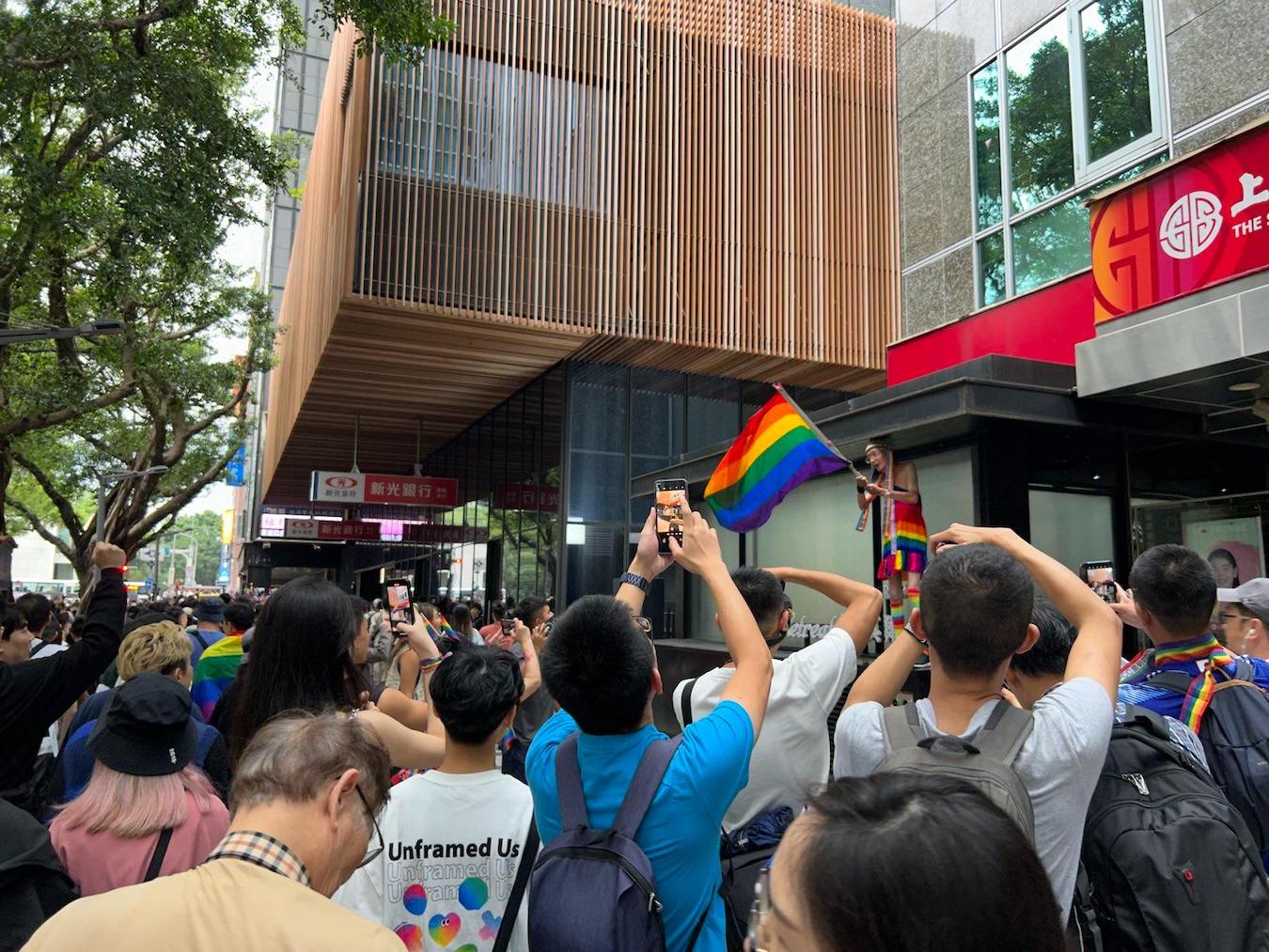 Marriage equality pioneer Chi Chia-wei, who filed the case that led to the legalization of gay marriage in Taiwan, and the first person to come out as gay on national television in Taiwan. Photo credit: Brian Hioe
Marriage equality pioneer Chi Chia-wei, who filed the case that led to the legalization of gay marriage in Taiwan, and the first person to come out as gay on national television in Taiwan. Photo credit: Brian Hioe
Subsequently, at 2 PM, the parade set out from City Hall, proceeding west, and then dividing into two routes. One route went south down Guangfu South Road and continuing westward before routing back north along Dunhua South Road to return to City Hall. The other route went north at Ren’ai Road, moved east on Zhongxiao East Road, in order to return to City Hall. The two routes passed each other along Ren’ai Road. As the march finished, talks and performances continued to take place at City Hall.
The theme of this year’s pride parade was “Stand with Diversity.” The parade aimed to highlight the diverse sexual and gender identities that exist in Taiwanese society, to allow for greater visibility and recognition of these identities. For example, obstacles still remain for trans recognition, with the Supreme Court having struck down laws requiring sterilization for one to legally change one’s gender ID, but a number of cases still being unresolved.
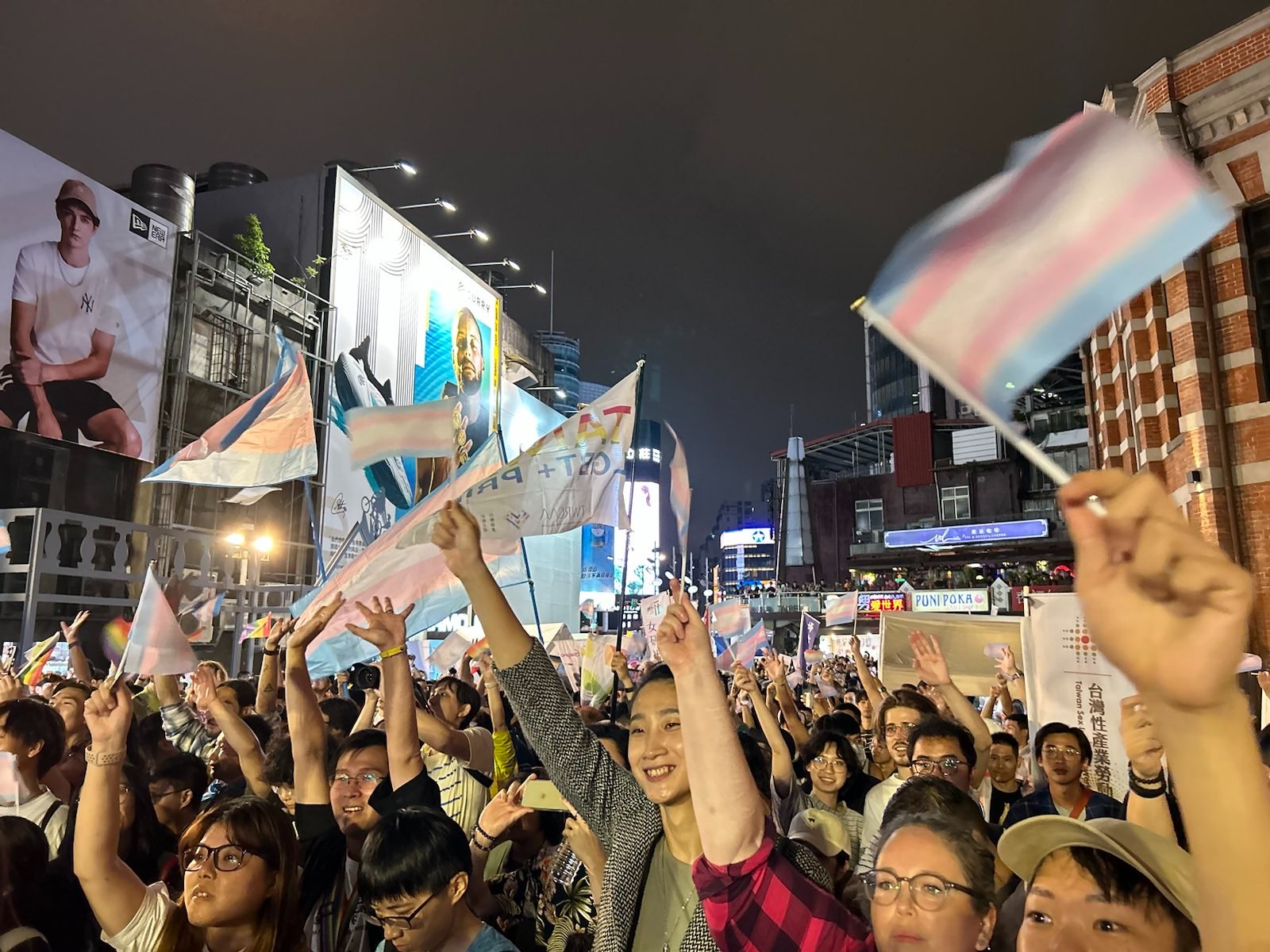 The Trans March yesterday night. Photo credit: Brian Hioe
The Trans March yesterday night. Photo credit: Brian Hioe
To this extent, yesterday night, the fifth annual Trans March was held in Ximen in front of the Red House. An estimated 5,000 individuals participated in the Trans March, which has grown steadily in size each year at a time in which trans rights have increasingly come to the forefront of advocacy in Taiwan.
Likewise, conservatives still continue to make curriculums that educate about LGBTQIA+ identities into a battlefield issue. Speakers pointed out that this continues to impact young people’s mental health.
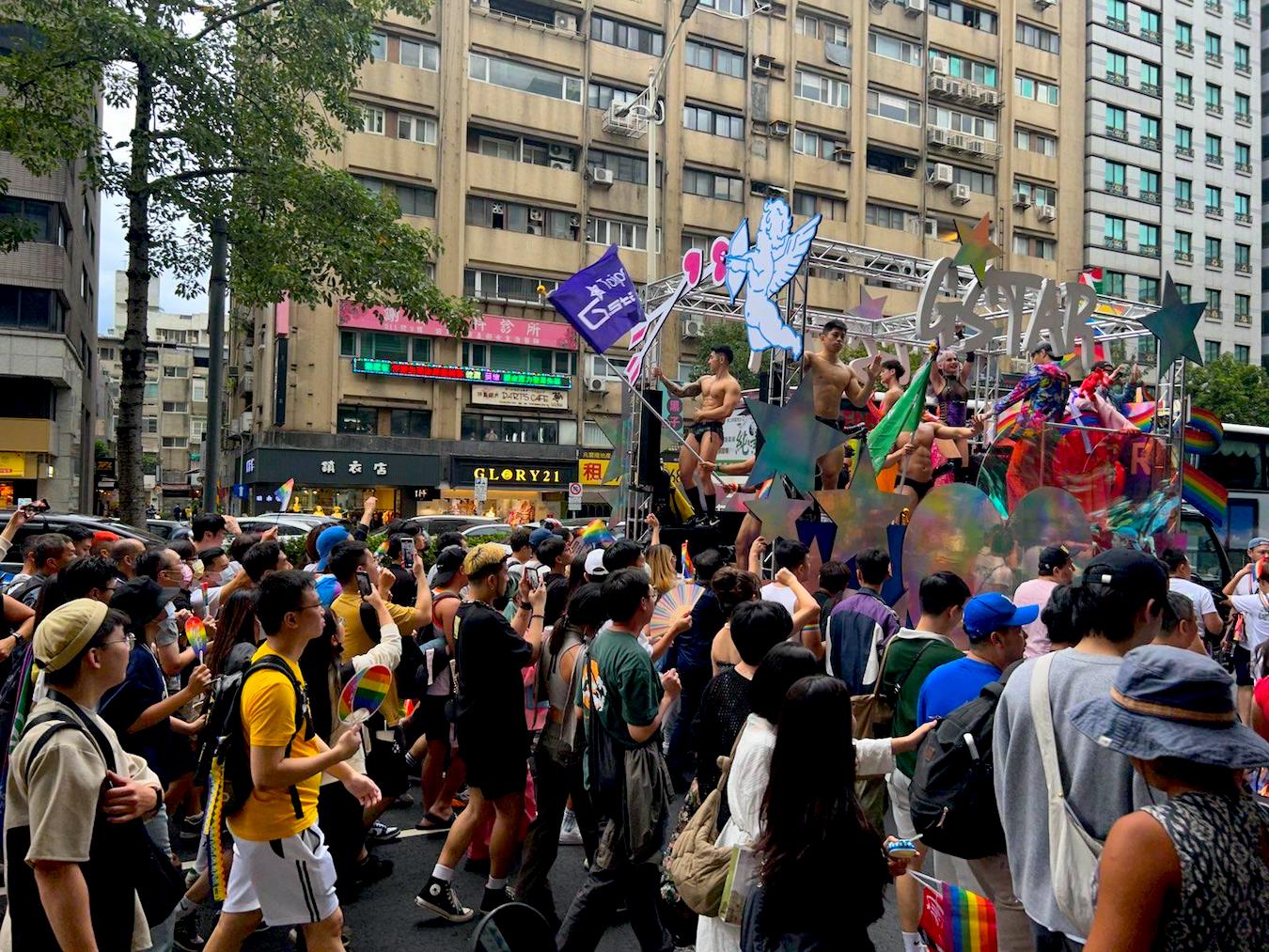 Photo credit: Brian Hioe
Photo credit: Brian Hioe
A number of Taiwanese civil society groups and political parties. These ranged from Amnesty International Taiwan to the Green Citizen Action Alliance. Otherwise, apart from stalls set up by corporate sponsors, a number of companies also had contingents or trucks, ranging from luxury brands such as LVMH, advertising firm Group M, to offshore wind company CWind. Indeed the Trans March last night was also the first time that the Trans March had corporate sponsors, which included everything from pharmaceutical company Gilead to the Tourism Bureau of Guam.
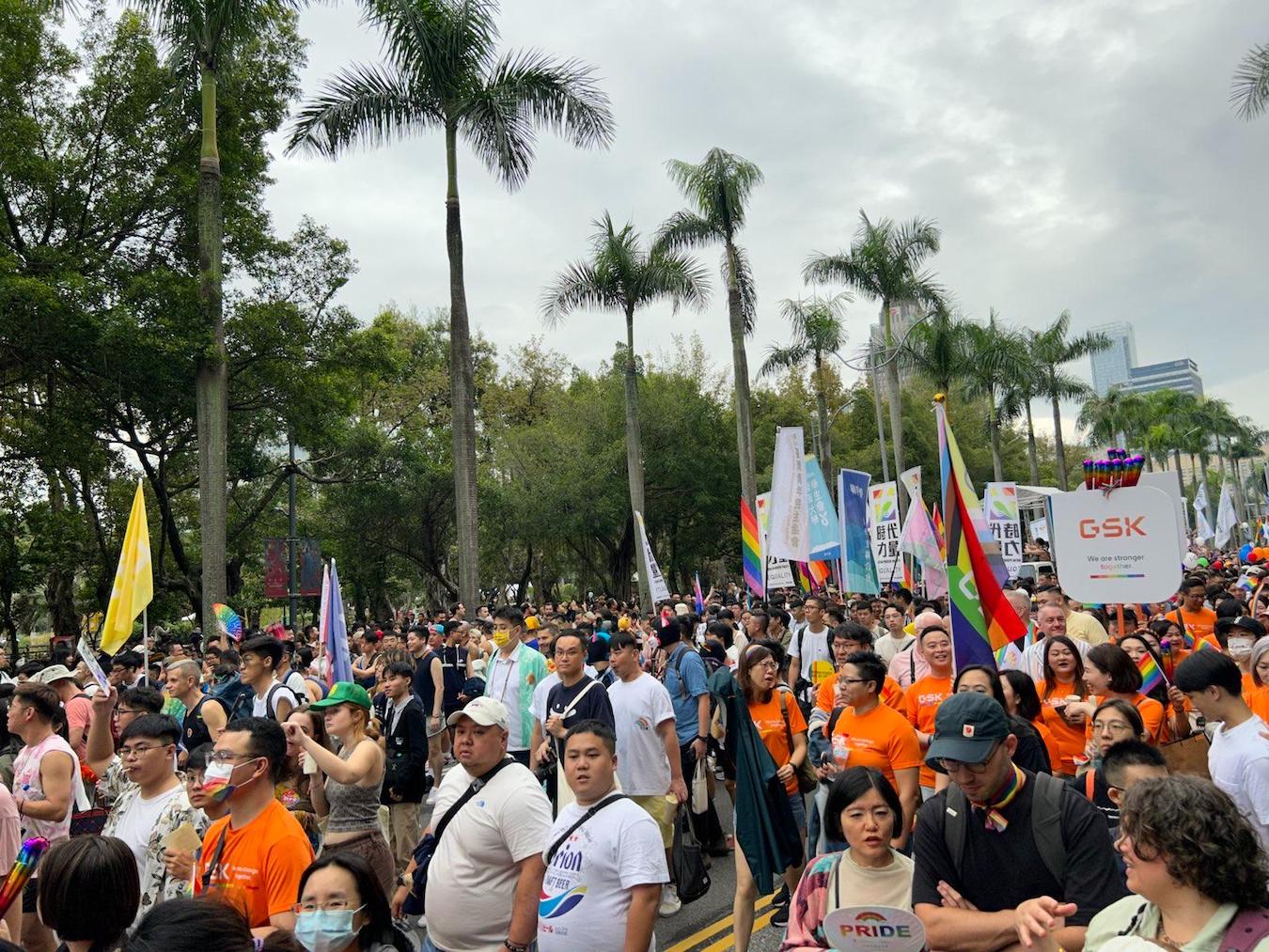 Photo credit: Brian Hioe
Photo credit: Brian Hioe
The DPP, NPP, TSP, and TPP all were present with delegations representing legislative candidates in the 2024 elections. In particular, DPP presidential candidate William Lai was present at the pride parade along with former Minister of Culture Cheng Li-chun–Cheng is often floated as a potential vice presidential pick for Lai.
This makes Lai the only presidential candidate to visit the pride parade, with the KMT instead holding a campaign event with its current mayors, and Terry Gou not attending either. Despite the TPP’s presence at the pride parade, Taipei mayor Ko Wen-je had expressed his personal opposition to gay marriage in the past, though under his tenure, Taipei created two rainbow-colored crosswalks in front of Ximen’s Red House and the Taipei City Hall. Although Lai has historically more been associated with the politically conservative wing of the DPP, Lai’s presence was probably to court the LGBTQIA+ vote, as well as the youth vote.
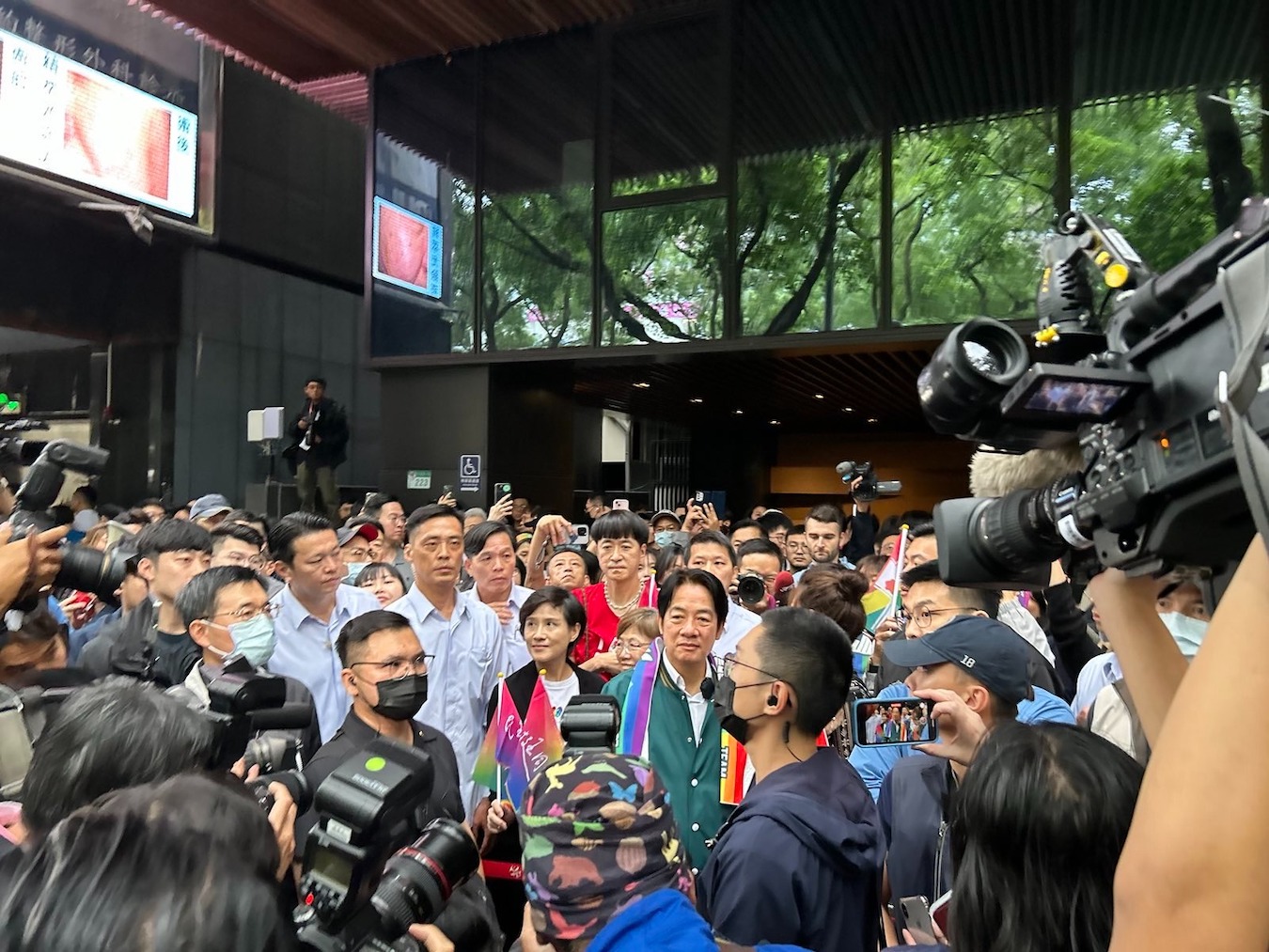 DPP presidential candidate William Lai (center-right) and former Minister of Culture Cheng Li-chun, with former legislator Yu Mei-nu (center). Photo credit: Brian Hioe
DPP presidential candidate William Lai (center-right) and former Minister of Culture Cheng Li-chun, with former legislator Yu Mei-nu (center). Photo credit: Brian Hioe
Regardless, trans recognition or other social issues that members of the LGBTQIA+ community face have not become significant campaign issues during the current election cycle. As conservative groups continue to mobilize around issues such as education curricula about gender and sexuality in Taiwanese schools, it continues to be important to push politicians to take stances that do not result in backsliding on the sexual freedoms Taiwan has won in past years, including but not limited to the legalization of gay marriage in 2019.

